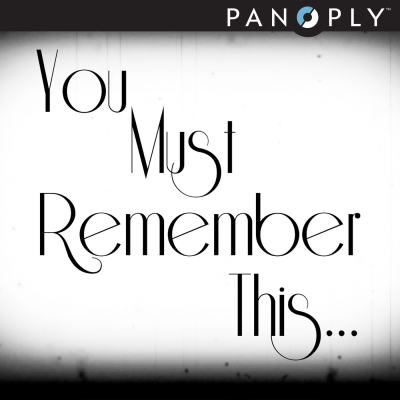If you’re a lover of podcasts, a lover of classic films, or a lover of storytelling in general, you must subscribe to You Must Remember This, a series devoted to the “secret and/or forgotten histories of Hollywood’s first century.” In every episode, host Karina Longworth dives deep into the lives of Hollywood’s former power players to trace their origin stories, rises to fame, and often devastating downfalls. For a real doozy, an excellent place to start is “Charles Manson’s Hollywood,” Longworth’s insane 12-part series uncovering some of the most untapped aspects of Manson’s life, including his upbringing, the origins of his cult, his deep friendship with Dennis Wilson, gruesome details of his murder sprees, and his bizarre legacy. (Don’t listen to the series in the dark alone, though.) We asked the one-woman powerhouse Longworth about her film criticism beginnings, what it takes to start a podcast, how she manages her time, and what advice she has for aspiring storytellers. You can download and subscribe to You Must Remember This, recently added to Slate’s Panoply network, on iTunes here. How did you get started as a writer and film critic?
How did you get started as a writer and film critic?
I went to grad school at NYU to get an MA in Cinema Studies, and while I was there I was hired by a company called Weblogs Inc, who were one of the few entities who believed you could make money off of blogs back in 2005, to help them launch a film blog called Cinematical. I finished my degree in May 2005 and then started working for them full time. It wasn’t a “real job” — I got no benefits, I got paid a flat rate of $2000/month to work 12-hour days with almost no days off — but I took it really seriously, and it ended up being better learn-on-the-job experience than any internship or entry level magazine job I could have had wouldn’t been. Then in October that year the company was sold to AOL, I got a job there that I hated, and that motivated me to find work that didn’t make me want to die. Long story short, I freelanced online and in print for the next four years, then got hired as the film critic at the LA Weekly in 2010.
Wondering if you work on You Must Remember This full-time, or is it a very time-consuming passion project? I can only imagine each episode takes a million hours to put together from start to finish.
Right now I work on the podcast as a 40-hour a week job, for about three weeks out of the month. The rest of the time, these days, is devoted to a new book I’m working on. I got an advance for the book, which makes up for the fact that the podcast is not making money yet, but it looks like it will soon.
What’s the book about?
It’s inspired by my series of podcast episodes on Howard Hughes in Hollywood and the women in his life. The idea is to tell the story of the Golden Era of the film industry, from the late silent era up to the collapse of the studio system in the late 1950s, through the lens of Hughes’ maverick (and sometimes bumbling) efforts within it, and in so doing, talk about what it was like to be a woman in this place and time.
How do you manage your time?
Basically, over the past few months I’ve worked on the podcast while I’m in London, where I currently live, and then every four weeks or so I go on a research trip for the book for a week or two. I can’t say it’s working out perfectly — I’m really tired — but I’m also doing stuff I love doing.
How did you come up with the idea for the podcast? Were these Hollywood stories you knew about and wanted to tell, or did you use the podcast as a great reason to deep-dive into the histories of these power players?
A little of both. I quit my job as a critic in 2013 and spent the next year or so freelancing and trying to figure out what I wanted to do. I knew I had ideas for things that I wanted to research, and that most of these ideas wouldn’t be that appealing to any of the publications that I was freelancing for. I also knew that people who listen to podcasts can never find enough podcasts to listen to, and I started to hear in my head what a show could sound like. I decided I had to try to make it, just so I could see if it worked.
How do you determine if a story’s worth telling? Has there ever been an instance where you started heavily researching a story but then decided to can it?
It’s interesting — the second half of your question is something I get asked a lot, and the answer is simply no. Basically, if I look at someone’s IMDb and Wikipedia profiles and don’t want to know more, I know at that point that it’s not worth it to do a whole episode. But some episodes have taken longer than others to research.
Once you’ve completed your research, do you then type out your entire “script” like a short story before recording? Is there a difference in writing for broadcast versus print?
Essentially I write a 4,500-5000 word essay and then I read it aloud. It’s really not that different from writing for print, except that I can go as long as I want, and it helps to include emotion in a way that you aren’t often encouraged to in journalistic writing about history.
Do you have any advice for aspiring writers/storytellers?
Read as much as you can, and write as much as you can. If you don’t see opportunities available to you, create your own. People want good writing and storytelling in their lives and often can’t find enough of it, so if you have something to say and can develop a voice in which to say it, you won’t struggle to be heard forever.
Finally, what are some films you’ve enjoyed recently?
I’ve liked a lot of American independent films these year, including Tangerine, Love and Mercy, Diary of a Teenage Girl, and While We’re Young. I’d like to see more films like those!![]()
